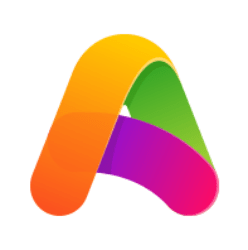There are many online and offline certificate programs in Computer courses. Nowadays online Computer courses certifications are very trending and their popularity is increasing day by day. In the world of digitalization, pursuing a computer course is very beneficial. The various topics covered in a computer course syllabus include computer fundamentals, MS Office, programming languages, etc.
Course Summary for Class 8 Computer Science:
Theme 01: Operating Systems
– Understanding the role and functions of operating systems
– Different types of operating systems
– Basic operating system concepts and terminologies
Theme 02: Working in Microsoft Excel
– Inserting, renaming, and deleting worksheets in Excel
– Selecting and naming cell ranges and applying formulas
– Differentiating between various types of cell references (e.g., relative and absolute)
Theme 03: Functions and Charts in Microsoft Excel
– Working with functions in Excel (e.g., SUM, AVERAGE, IF)
– Creating and customizing charts and graphs in Excel
– Analyzing and visualizing data using Excel functions and charts
Theme 04: Algorithms and Flowcharts
– Understanding algorithms and their importance in computer science
– Creating and interpreting flowcharts to represent algorithms
– Solving problems through algorithmic thinking and flowcharting
Theme 05: Introduction to Programming in Java
– Exploring the need and importance of programming
– Introduction to the Java programming language
– Basics of Java programming, including variables, data types, and control structures
Theme 06: Introduction to Apps
– Understanding the concept of mobile apps
– Exploring different types of mobile applications
– Basic terminology and concepts related to app development
Theme 07: Developing an App
– Overview of the app development process
– Steps involved in creating a simple mobile app
– Hands-on experience with a basic app development tool or platform
Theme 08: Networks
– Understanding the components of a network (e.g., routers, switches, servers)
– Exploring different types of networks (e.g., LAN, WAN)
– Models for network communication and data transfer
– Network structures and topologies
– Key terms related to the Internet and its functioning
Theme 09: More on Computer Networks
– Introduction to network protocols (e.g., TCP/IP, HTTP)
– Exploring the characteristics and advantages of cloud computing
– How cloud computing impacts network infrastructure and services
This Class 8 Computer Science course covers a wide range of topics, from basic computer operations to network concepts and cloud computing. Students will gain knowledge and practical skills related to computer software and hardware, data manipulation in Excel, algorithmic thinking, programming fundamentals, mobile app development, and network principles.
This course is designed to develop students’ computer literacy, keyboarding skills and to meet the needs of students in the associate degree programs and technical certificate programs. The student will learn from hands-on experiences basic skills in file management utilities, word processing, spreadsheets, and graphical presentations in the Windows environment.


